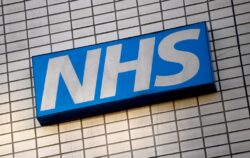The National Health Service has been in existence for over 70 years. (Picture: EPA/NEIL HALL)
One of the oldest universal healthcare systems in the world, the NHS was founded on a simple principle – that healthcare should be a human right, not a privilege to be enjoyed by those who could afford it.
Upon its creation over seventy years ago, Nye Bevan, widely seen as the father of the National Health Service, was quoted as saying: ‘The NHS will last as long as there are folk left with faith to fight for it.’
Well, the NHS still exists.
In a poll conducted in 2018, the National Health Service was revealed as Britain’s second-most-valued institution – even ahead of the British Army.
However, the service now faces what many believe to be the most challenging period in its history.
The Covid-19 pandemic put the service under incredible pressure, with, as of October 2022, a backlog of 7.21 million people waiting for treatment.
Now, for the first time in its history, the Royal College of Nursing has announced it will go out on strike over pay and conditions.
With the NHS never far from the headlines, many will be wondering what it was like before the existence of the health service.
Here’s what you need to know.
When was the NHS founded?
Following the landslide Labour victory in 1945 in the general election, Aneurin Bevan was appointed as the minister of health and was responsible for setting up the NHS.
On 5 July 1948, the National Health Service was born as the government took the responsibility for all medical services, providing free diagnosis and treatments for everybody.
What was life like before the NHS?
Before the NHS was created, an unequal system of healthcare existed for patients.
This came, in part, from voluntary and municipal hospitals, which were run by local authorities following the historic Poor Law legislation.
Treatments were performed by nurses and doctors who had spent time training with limited resources.
In 1911, chancellor Lloyd George created a system of National Health Insurance.
It meant those that offered contributions would receive money to assist them if they fell ill but it was only open to those who donated to the system.
The Poor Law also offered some financial aid to the poorest of families, and the local government’s Public Health System was another branch of aid for those ill.
But the Labour government disliked this patchwork of options and believed a good healthcare system should be available to all, regardless of wealth.
While most people are now registered with a doctor, 70 years ago they did not have their own doctor.
Prior to the establishment of the NHS, babies were often born at home or in a nursing home attended by a midwife. Mothers would have to pay the midwife ‘one and six’ to deliver the baby.
If they wanted a doctor to attend, this would also come at a cost – as would any medicine they required.
Moving births from home into a medical environment had a positive impact on infant mortality rates, as mothers could get better care.
Nurses are set to strike for the first time. (Picture: Getty Images)
At the 2014 Labour Party Conference, Harry Leslie Smith, writer and activist, talked about his life and experiences before the NHS was formed.
He said: ‘I came into this world in the rough and ready year of 1923. I’m from Barnsley, and I can tell you that my childhood, like so many others from that era, was not like an episode of Downton Abbey.’
‘Instead, it was a barbarous time. It was a bleak time, and it was an uncivilised time – because public healthcare didn’t exist.’
How did the NHS change healthcare?
Since the NHS was founded, life expectancy rates have also soared: people now live 13 years longer than they did 70 years ago, according to the ONS.
Access to universal healthcare, medical advancements and a general improvement in living conditions all play a part in this.
Protesters rallying against the privatisation of the NHS (Picture: Peter Summers/Getty Images)
With wide access to healthcare came widespread immunisation, too, meaning diseases such as polio were virtually wiped out after a vaccine was introduced in the 1950s.
In 1953, the BCG vaccine was offered to all children of school-leaving age to target high rates of TB in young adults.
Prior to the NHS, those that couldn’t afford to pay for their treatment would often be bumped down the priority list and the rich would pay their way to the top – for example, a single patient with tuberculosis requiring an operation (thoracoplasty) might pay more than £1,000, according to Nuffield Trust.
MORE : If the NHS is to make another 70 years the government needs to show migrants like me we are welcome
Follow Metro across our social channels, on Facebook, Twitter and Instagram
Share your views in the comments below
What healthcare was available?





